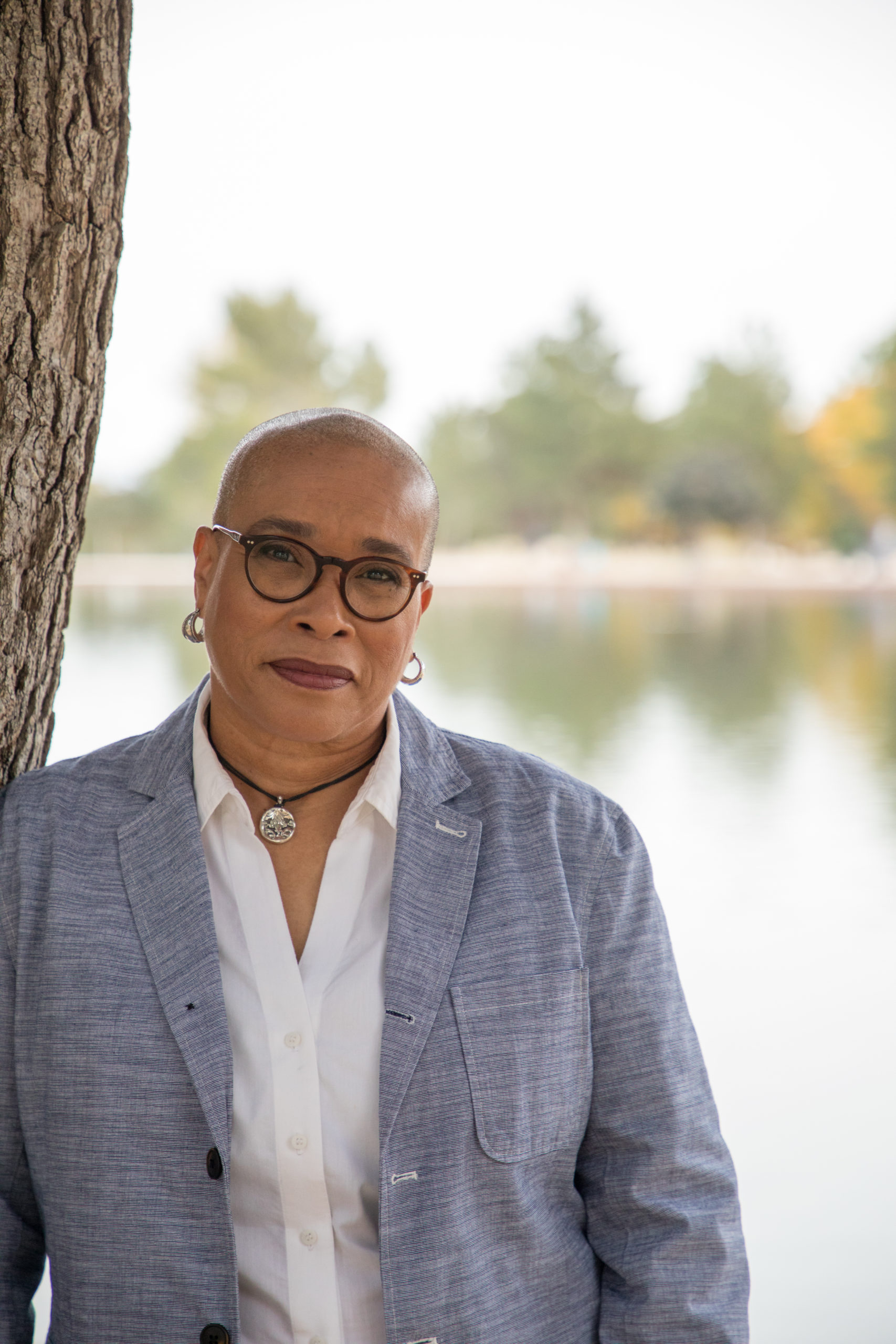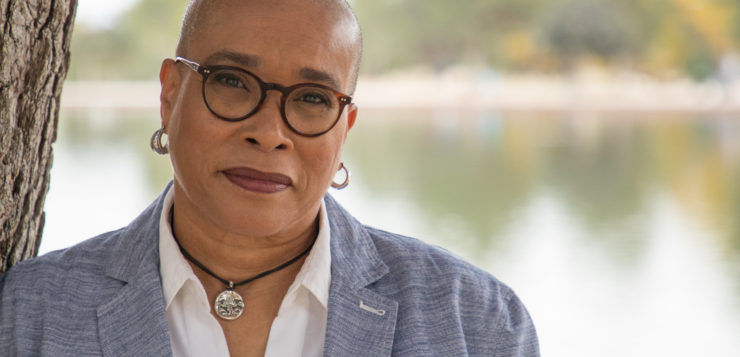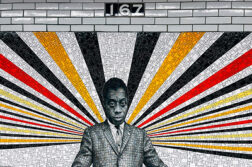I COULD BARELY catch my breath before I reached for my cellphone and tapped in my mother’s home number. I could hear the grief in her voice when she answered. My mom, an 84-year-old African-American and Indigenous American, later told me she cried tears of bitterness at the news: the U.S. Capitol was being stormed during a riot by white supremacists.
“I wanted to believe we had come further than this,” she said. The words echoed like a quiet plea for help. Rage swelled uncomfortably within me, creating all sorts of havoc in my body and mind, but all I could do was take in a breath and sit with my chaotic emotions.
A few days later, first thing in the morning I pulled up a meditation app on my phone and listened to the guided meditation led by Tuere Sala. At the end of the mediation, three points of focus stuck with me. Just now. Just here. Just this. Those three points gave me life, allowing me, a queer, mixed-race woman, to regain a sense of balance and remember that I belong. I belong to this moment right now. I belong to my country right here, and I belong to this particular time in history.
I didn’t always feel or think I belonged. In the mid-1960s, after my father’s Army assignment in Germany, my family returned to the U.S., settling in Georgia. I would find out much later in life that my parents were concerned about returning to the U.S. because I had picked up the German language, and at the age of five, it had become my primary language. Can you imagine? An African-American, Choctaw female child living in Georgia who spoke German with a southern drawl? No wonder my parents were concerned and worked to teach me English. After all, racial injustice was at the forefront in the U.S., and deviation from the norm was not yet tolerated—especially from Black folk. However, my parents’ mixed messages of love and “You don’t quite fit in” conveyed a feeling that I didn’t belong.
By my teen years, I replaced German with English, and I figured out I preferred girls over boys, gender-bending fashion over “gender-appropriate” dresses, and books over television. I was too brown for white kids and not brown enough for Black kids. Not welcomed into the cool cliques, the sports cliques, or even the nerdy cliques, I assumed that kids objected to my personality. It did not occur to me that my physical appearance gave people cause to snub me. Ah, now my parents’ edict made perfect sense—my grades and behavior had to be impeccable at all times, eclipsing everyone else’s. Physical appearance mattered. So did abhorrent behavior like identifying as a lesbian, so I remained closeted—until I didn’t.
It’s been decades since I came out as a queer, mixed-race brown woman. And still the last bastions of feeling like an “other” nip at my heels. Perhaps, it is my shaved head and my brown skin that covers the faint remnant of a muscular build from years of weight training that gives people pause. Perhaps the fact that I don’t “know my place” causes white men to clip my shoulder when I don’t yield my space on the sidewalk as they pass by. Or perhaps it’s that I don’t smile at the white woman who sees me from a distance and reflexively pulls her purse a little closer to her body. Or perhaps it’s the rarity of people like me in the transformation world that causes people to stare when I enter a conference hall to attend training. Who knows? But the stares, the reflexes, the clips, all telegraph a single message—I do not belong.
But I beg to differ.
I belong to everything, and everything belongs to me. I belong to the neighborhood where I choose to live. I belong in the parking lot of the chic grocery store that I drive to, some five miles away, because that’s where I prefer to purchase my vegetables. I belong to my friends, my family, my lovers, and my haters.
And I belong to the mess that took place on January 6, 2021, when an armed group of misguided hooligans struck the seat of our democracy, willing to send the message that you and I don’t belong. Willing to violently force their ideology of racism, homophobia, transphobia, sexism, and other isms onto the diverse American populace, they denigrated the seat of democracy, attempting to beat back some of the gains of freedom we have claimed as citizens. Most of us held our breath, shook our heads in disbelief, and started the blame game— including me, until I heard— just here, just now, just this.
Living in the in-between space of rage and equanimity has been difficult. I’ve thought about the feeling of being an “other,” and it seems to me that in so many ways, we are all “other” in relation to the groups we disdain. Is it any wonder peace eludes us? Is it any wonder we struggle to feel a real sense of community? If we want a sense of true belonging, it will not be achieved through struggle or conquest. Nor will it be achieved through military might or economic struggle. Lasting peace and real belonging must be created where every person can equally enjoy it without fear of being an “other.” We can go further, just here, just now, with just this.

Opa Hysea Wise worked as a training and development specialist and manager in government and corporate organizations, often tasked with developing and delivering diversity courses. A Jack Canfield success coach, she is the author of the recently published book No Place to Hide. To learn more, visit: opahyseawise.com.






